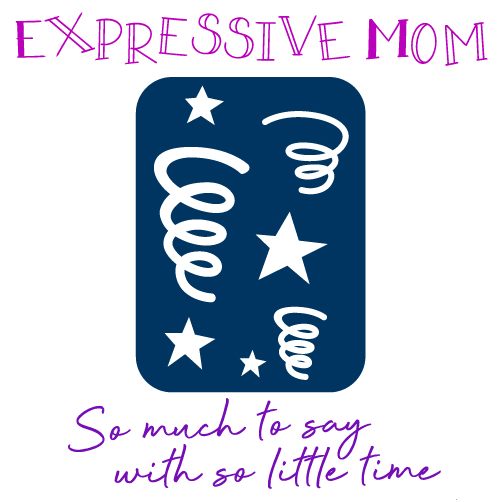Hearing loss is frequently associated with aging. However, hearing loss among adolescents and teenagers may be considerably more common than you think.
Noise exposure from recreational (exposure to loud music, performances, games, other events, etc.) and occupational (poor care, farm machinery, etc.) sources causes around 1 in 6 teenagers to develop hearing loss.
Furthermore, some 360 million individuals (almost 5% of the world’s population) suffer from hearing loss, with nearly 32 million of them being children. It is claimed that over 60% of hearing loss might be averted if preventative steps were taken.
Hence, let’s review how vital hearing loss is among children and what are the leading preventional solutions for hearing loss among them.
Understanding Hearing Loss
Hearing loss occurs when your child’s hearing ability diminishes suddenly or gradually. Typically it varies from moderate or severe, depending on the underlying cause. It might be temporary or permanent.
In cases of conductive hearing loss, the sound is typically obstructed before it reaches the inner ear. At the same time, during sensorineural hearing loss, sound usually enters the inner ear. In this case, an issue with a child’s inner ear, brain, or nerves that enable them to hear is the leading cause of hearing loss.
The high prevalence of hearing loss in children and teenagers can be attributed to various factors. Ear infections, exposure to ototoxic medications, specific infections and diseases, and noise exposure are all common causes of hearing loss. To know the exact cause of the hearing loss and its severity, the best choice is to visit a hearing aid clinic for a professional consultation as soon as possible.
What is the Procedure for Diagnosing It?
Hearing tests are done to determine whether or not a youngster or a baby has hearing loss. Hearing tests come in various types. They assist in determining what kind of hearing loss your child may have. They can also demonstrate how serious it is. Hearing tests may be referred to an audiologist by your doctor.
What are the Signs and Symptoms?
Your child may develop hearing loss if they are not responsive to speech or sounds as well as before. The following are some of the most prevalent hearing loss symptoms:
- Increased exhaustion during a hectic school day or in noisy environments. Listening takes effort, so if you have trouble hearing, you’re using more resources to listen. As a result, your hearing energy may be depleted by the end of the day.
- Distracted behavior resembles attention deficit disorder. Children with hearing loss may get distracted easily and have difficulty paying attention when surrounding sounds are prevalent. This can also happen in seemingly calm environments.
- Hearing loss or “ringing in the ears” is described differently. Children frequently characterize tinnitus (ringing in the ears) as a sound in their imaginations. They might say they perceive bees or the wind blowing, for example. However, younger children may not mention anything since they are unaware that others are not experiencing the same thing.
The Consequences of Untreated Hearing Loss
Although language development is among the most visible effects of childhood hearing loss, it also impacts literacy, self-esteem, and interpersonal skills. In addition, hearing loss that goes untreated is frequently linked to scholastic underperformance, leading to fewer job prospects later in life.
Communication problems can have long-term emotional and mental implications, leading to feelings of loneliness, sadness, and alienation. The effect on the family is also significant. Parents of deaf or hard-of-hearing children have unique obstacles, are more likely to be stressed, have higher out-of-pocket expenditures, and miss more workdays than other parents.
Treatments for Hearing Loss in Children
Treatment is determined by the kind of hearing loss, the source, and the severity of the hearing loss. A multidisciplinary group should evaluate children with permanent hearing damage, including an audiologist, ENT physician, speech-language therapist, and education expert.
Hearing Aids
A hearing aid may recover hearing to normal or near-normal ranges if conductive hearing loss is caused by a deformity of the outer or middle ear. On the other hand, a hearing aid will only operate if it is worn. Therefore, you must make sure it is turned on and working, especially if the child is tiny. When the child gets older, reconstructive surgery may well be performed.
Hearing aids for babies with hearing loss should be fitted as soon as possible to help them become aware of sounds and speech. Language development is greatly aided by an early introduction to spoken or visual (sign) language. Hearing devices can enhance hearing so much in children with mild to moderate sensorineural hearing loss that they can acquire everyday conversation and spoken language.
The Use of Cochlear Implants
If your kid has severe to profound hearing loss for both ears and hearing aids are ineffective, they may be candidates for cochlear implants. If your family plans an implant for a kid born with a hearing loss, obtaining the implants early (preferably by one year of age) gives your kids the best chance of developing good speech and hearing (over three years old).
Most children with developmental delays who receive cochlear implants early in life and follow up with intense therapy can acquire good to outstanding hearing and be assisted in a mainstream school context. Furthermore, practically all children with cochlear implants become more conscious of the sounds around them.
Concluding Thoughts
Early detection and treatment of hearing loss are critical. This can help a child’s speech and language development proceed more smoothly. When a child is diagnosed with hearing loss, consulting with a hearing aid professional is highly recommended.



Connect With Me !